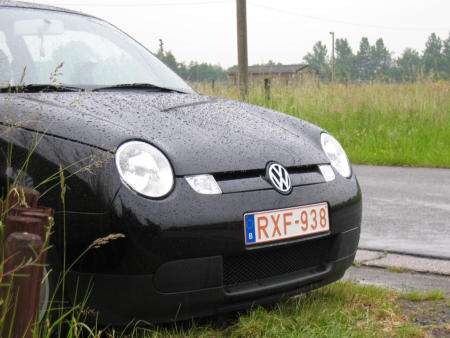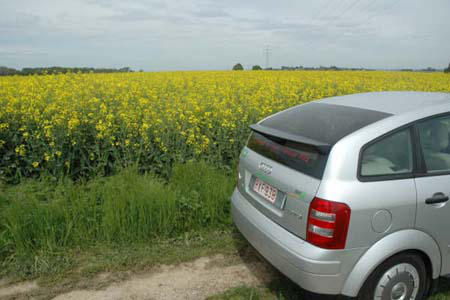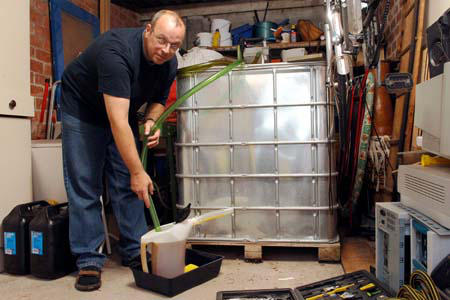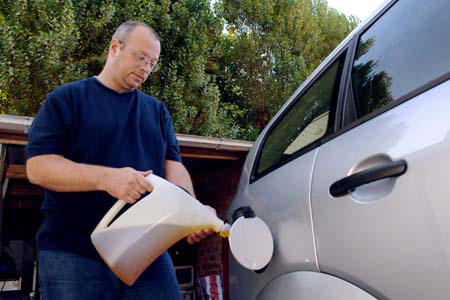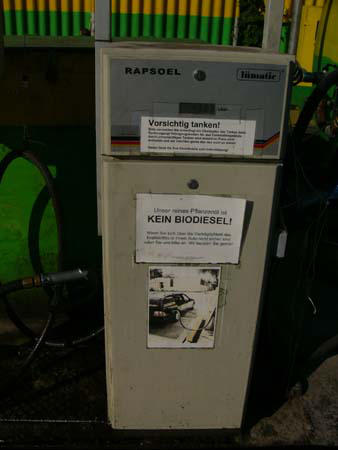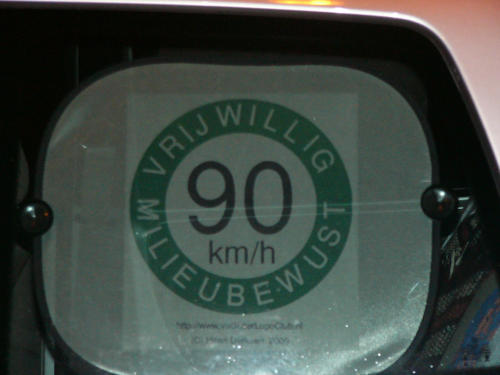



© Mondo vzw 2017
Mondo vzw Projecten
Vegamobiel
Why ?
As it is wiser to look for oil as feedstock instead of fuel and because the hydrogen technology has
not advanced far enough, it was a logical choice to use PPO as a fuel for the car.
The first requirement was to find a economical car.
First there was a VW Lupo 1.2 TDI 3L,this is car with a average consumption of 3l/100km
and CO2 emissions of 85g/km. Unfortunally, by a traffic accident, the car was declared total loss.
We got an offer to buy a Audi A2 1.2 TDI 3L.This has the same engine and associated consumption.
They were the most economical cars on the market (production of the Lupo & A2 ended on 30-06-2005)
and which were developed with self ignition principle.
This diesel cars can drive on PPO after some small adjustments. It was also the inventor, Rudolf Diesel,
who started to run his first self ignition on nut oil.
In his patent application in 1912 he recognized the importance of stored solar energy,
which is a constant and renewable resource. eg in pure vegetable oils
PPO fits perfectly into the context of renewable energy.
Vegetable oil is a renewable, non-finite fuel, which can be used worldwide as fuel by the use of local fruits or seeds oil.
Vegetable oil is part of a natural cycle. When used as fuel, it makes only as much CO2 (carbon dioxide)
that will be fully reversed during the growth of the plant. The natural balance is maintained.
It is also sulfur-free during the combustion, which means no emissions which occurs "acid rain".
The fuel has more energy content (via photosynthesis to stored solar energy) as petrol, and doesn’t harm
as by the benzenes or other noxious fumes. It contaminates neither the seas nor the groundwater.
Comparing to fossil fuels, PPO is non-toxic (it is even drinkable!), non- explosive and naturally biodegradable.
Compared with solid biofuels (wood, straw) biogas and vegetable oil has the highest energy value through
photosynthesis, about 9.2 kwh per liter and it is just between gasoline (8.6 kWh) and diesel (9.8 kWh).
PPO emissions compared to diesel
> Carbon monoxide (CO): minus 50%
> Carbon dioxide (CO2): neutral
> Hydrocarbons (HC): minus 40%
> Nitrogen oxides (NOX): plus 5-15% (depending on engine type)
> Carbon particles: minus 50%
Rapeseed
Mondo vzw also did a lot of thinking on mobility in the context of sustainable management of energy.
As result, the Vegamobile was born, a car that was converted to run on PPO= Pure Plant Oil
A very economical car (Audi A2 1.2 TDI 3L) was adapted in Germany so he can drive on rapeseed oil

